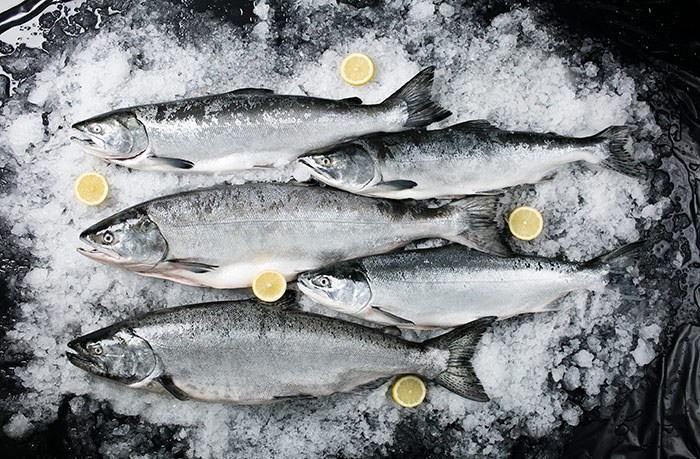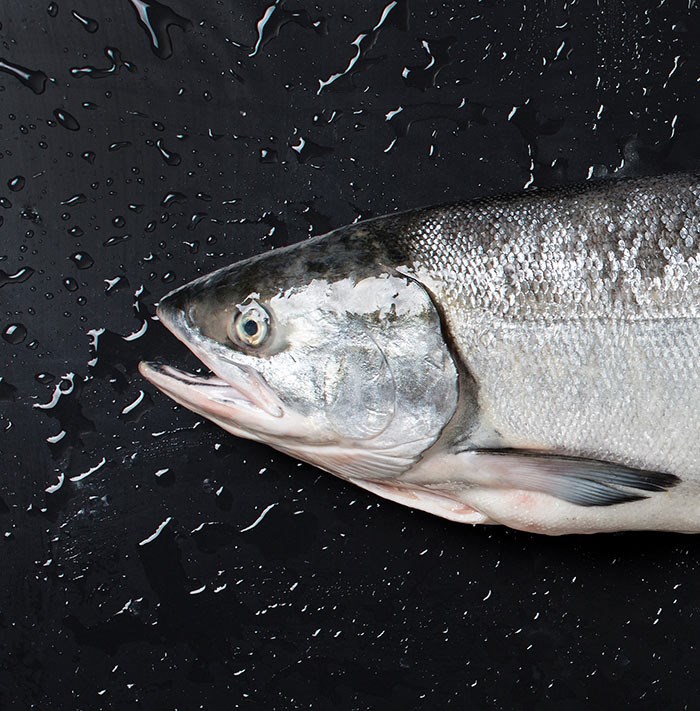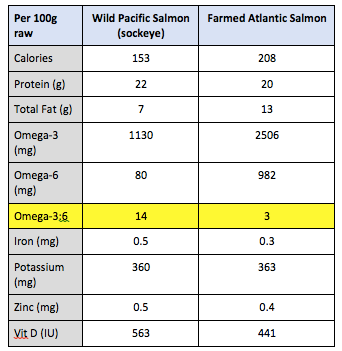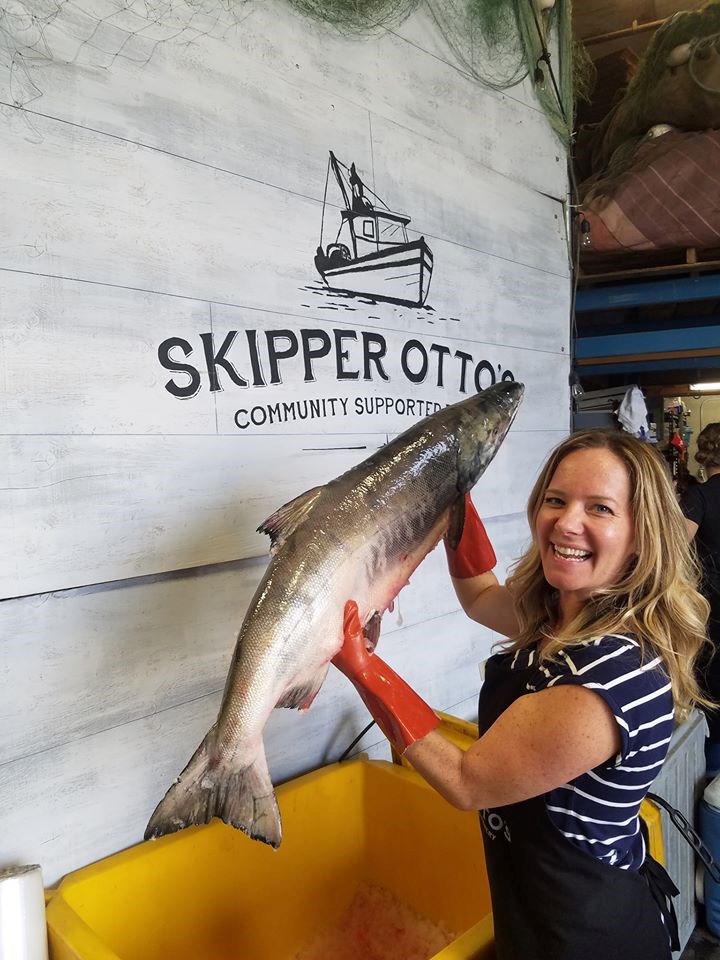With several thousand Atlantic salmon recently escaping from a salmon farm near Victoria last week, farmed salmon are on many of our minds. In addition to concerns over potential environmental impacts, there is also a nutritional difference between wild and farmed salmon that's worth considering. Holistic nutritionist, and Skipper Otto’s member, Melissa Evanson takes a look at the nutritional value of farmed vs. wild salmon.
 Provided by Skipper Otto
Provided by Skipper Otto
Everyone knows salmon is a nutritional powerhouse. It’s credited with everything from decreasing inflammation1, lowering blood pressure2, and reducing cancer risk3. But are all salmon created equal or does farmed salmon differ nutritionally from wild-caught salmon? Let’s take a closer look.
Farmed salmon have a higher fat content than their wild counterparts which means it has more calories and less protein per serving, and a higher omega-3 essential fatty acid (EFA) content. You’d think higher omega-3s would be a good thing and mean more omega-3 per serving. Not exactly.
You can’t get one without the other
 Photo: Olivia Sari-Goerlach.
Photo: Olivia Sari-Goerlach.
Nutritional assessments have found more omega-3s per gram in farmed compared to wild salmon, but farmed salmon also comes with a substantial serving of omega-6s. We then need to factor in that omega-6s and omega-3s compete for the same receptors in our bodies4. So looking to the ratio of omega-3:6 as opposed to total omega-3 is essential when assessing health and nutritional benefits. When we do that, we can see that wild salmon have a significant nutritional advantage with a 14:1 ratio vs the 3:1 ratio of farmed salmon (see table below).
You may ask “What’s so bad about omega-6? Aren’t they also an ‘essential fatty acid’?”
Yes, but…
 Omega-6 and omega-3 are both EFAs, which means they are essential for the body and need to be consumed via the diet. Throughout history, humans ate a diet where EFAs were balanced. But over the past century, dietary shifts have resulted in significant increases in our consumption of omega-6s and decreases in our consumption of omega-3s. This has resulted in increased prevalence of weight gain, obesity5, and chronic inflammation6 due to the difference in response that omega-6 EFAs elicit in the body compared to omega-3s.
Omega-6 and omega-3 are both EFAs, which means they are essential for the body and need to be consumed via the diet. Throughout history, humans ate a diet where EFAs were balanced. But over the past century, dietary shifts have resulted in significant increases in our consumption of omega-6s and decreases in our consumption of omega-3s. This has resulted in increased prevalence of weight gain, obesity5, and chronic inflammation6 due to the difference in response that omega-6 EFAs elicit in the body compared to omega-3s.
With great fat, comes great responsibility
 Sources: ndb.nal.usda.gov, nutritiondata.self.com
Sources: ndb.nal.usda.gov, nutritiondata.self.com
Increased fat in farmed salmon brings other things with it. Farmed salmon have been found to have significantly higher concentrations of “fat-loving” contaminants as PCBs, dioxins, and pesticides7, most likely due to their feed. While it has been argued that the benefits of consuming omega-3s from farmed salmon outweigh the health risks of contaminants, why risk it if you can eat wild salmon instead of farmed?
The bottom line: wild salmon wins over farm salmon from a nutritional standpoint, whether it be based on contaminant levels, healthy fats, or overall micronutrient density.
 The only way to be sure you’re getting wild BC salmon is to know your source! Skipper Otto’s members are assured that the fish they are buying is fresh, local, wild BC salmon and are even provided with information about who caught each fish, where, when, and how. It’s how I choose to buy my seafood and support optimal health at the same time. Membership sign up opens October 15, 2017!
The only way to be sure you’re getting wild BC salmon is to know your source! Skipper Otto’s members are assured that the fish they are buying is fresh, local, wild BC salmon and are even provided with information about who caught each fish, where, when, and how. It’s how I choose to buy my seafood and support optimal health at the same time. Membership sign up opens October 15, 2017!
References
1. https://www.ncbi.nlm.nih.gov/pubmed/24860193
2. https://www.ncbi.nlm.nih.gov/pubmed/26817716
3. https://www.ncbi.nlm.nih.gov/pmc/articles/PMC4418048/
4. https://www.ncbi.nlm.nih.gov/pubmed/25373089
5. https://www.ncbi.nlm.nih.gov/pmc/articles/PMC4808858/
6. https://www.ncbi.nlm.nih.gov/pmc/articles/PMC3335257/
7. https://www.ncbi.nlm.nih.gov/pubmed/16323755
Find more tips and information about optimal health, visit melissaevanson.com or www.facebook.com/melissaevansonrhn/.


